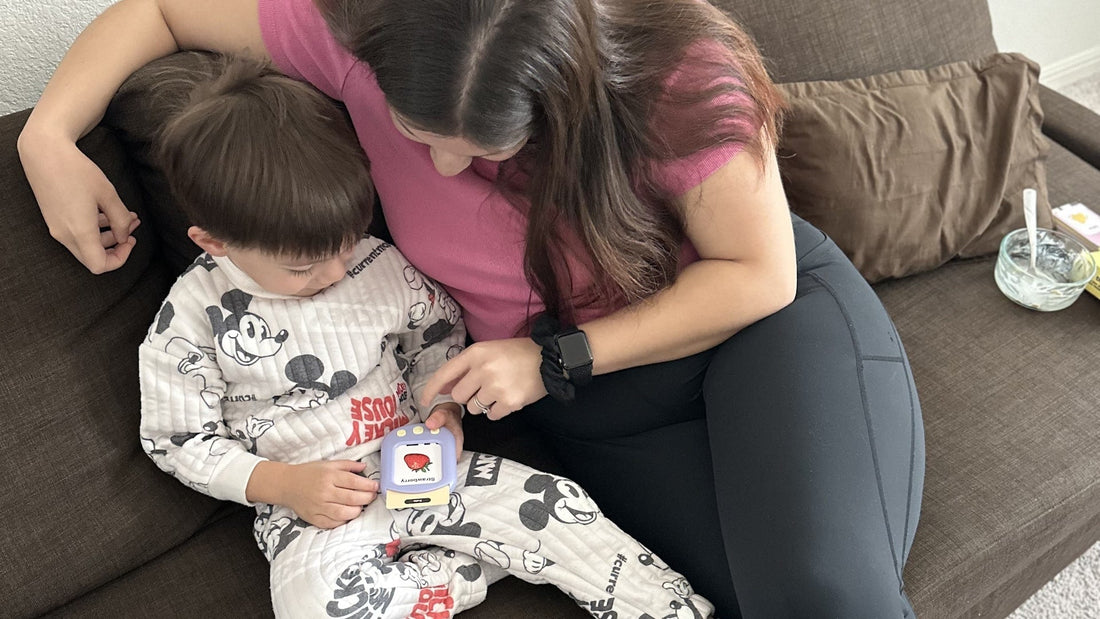
Why kids struggle to concentrate (and what you can do about it)
Even as adults, we struggle to focus. How many times have you picked up a book, only to reread the same paragraph because your mind wandered? With the constant flood of notifications, fast-scrolling feeds, and endless information, staying focused feels harder than ever.
Now, imagine being a child. Their brains are still developing the ability to concentrate, but they’re growing up in a world designed to pull attention in a million directions. If we, as adults, struggle to stay present, how can we expect kids — who are naturally more impulsive and curious — to focus on learning, conversations, or even play without distraction?
The upside? Focus is a skill, and like any skill, it can be strengthened. With the right environment and a few simple strategies, you can help your child build better concentration, navigate distractions, and stay engaged in real-world learning — without feeling overwhelmed.
Practical ways to help kids build focus
If kids are struggling to concentrate, it doesn’t mean they’re incapable of focus — it just means they need the right tools and habits to strengthen this skill. Here are some practical, research-backed strategies to help:
1. Create a focus-friendly environment
Kids are more likely to stay engaged when their surroundings support concentration. Try these small but powerful tweaks:
- Designate a clutter-free space for learning and play.
- Minimize background noise — turn off the TV or put devices on silent.
- Use soft lighting and comfortable seating to make the space inviting.
Even small environmental changes can have a big impact on attention span.
2. Set up short, structured focus sessions
Young children naturally have short attention spans, so expecting them to focus for long stretches can backfire. Instead, use timed focus sessions:
⏳ For toddlers: 5-10 minutes of structured activity, then a break.
⏳ For preschoolers: 10-20 minutes, gradually increasing as they grow.
⏳ For school-age kids: 25-30 minutes, using short breaks to reset their minds.
The key? Keep it predictable. Consistent, short focus sessions help children develop the stamina needed for longer concentration over time.
3. Encourage movement breaks
Sitting still for too long can drain focus — especially for active kids. A quick movement break helps reset the brain and improve attention. Try:
- Stretching, jumping jacks, or a short dance session.
- A quick walk outside for fresh air.
- Hands-on activities like building blocks or drawing.
According to a study published in the Journal of Attention Disorders, children who engage in short bursts of physical activity between tasks show improved focus and cognitive performance.
4. Make learning interactive
Passive learning (like watching videos) can lead to shorter attention spans, while interactive learning keeps kids engaged. Try:
- Role-playing activities where they act out a concept.
- Speech-based play, like storytelling or answering questions.
- Puzzle-solving or problem-based challenges to keep their minds active.
5. Reduce screen dependency
- Implement “screen-free hours” during key parts of the day (like mornings and before bed).
- Replace screen time with hands-on activities like puzzles, coloring books or creative play.
- Encourage real-world conversations instead of passive content consumption.
Case study: How a preschool improved focus in kids
A 2021 study in Early Childhood Research Quarterly observed a group of preschoolers struggling with focus and attention. Teachers introduced structured, play-based activities that included:
- Storytelling with interactive discussion
- Short movement breaks between learning tasks
- Hands-on problem-solving games
After eight weeks, the children showed:
✔ A 27% increase in their ability to focus on tasks.
✔ Fewer distractions and interruptions during activities.
✔ Stronger language skills due to more verbal engagement.
The study confirmed what many experts say: Interactive, screen-free play is one of the best ways to help kids build focus naturally.
References & Footnotes
- Harvard Graduate School of Education – The Impact of Screen Time on Child Development
https://www.gse.harvard.edu - Journal of Attention Disorders – Effects of Short Movement Breaks on Children's Focus and Cognitive Performance
https://journals.sagepub.com/home/jad - American Academy of Pediatrics (AAP) – Recommendations for Healthy Media Use in Children
https://www.aap.org - Early Childhood Research Quarterly – Study on the Effects of Play-Based Learning on Attention Development
https://www.sciencedirect.com/journal/early-childhood-research-quarterly - National Institute of Child Health and Human Development (NICHD) – How Children Develop Attention and Focus
https://www.nichd.nih.gov